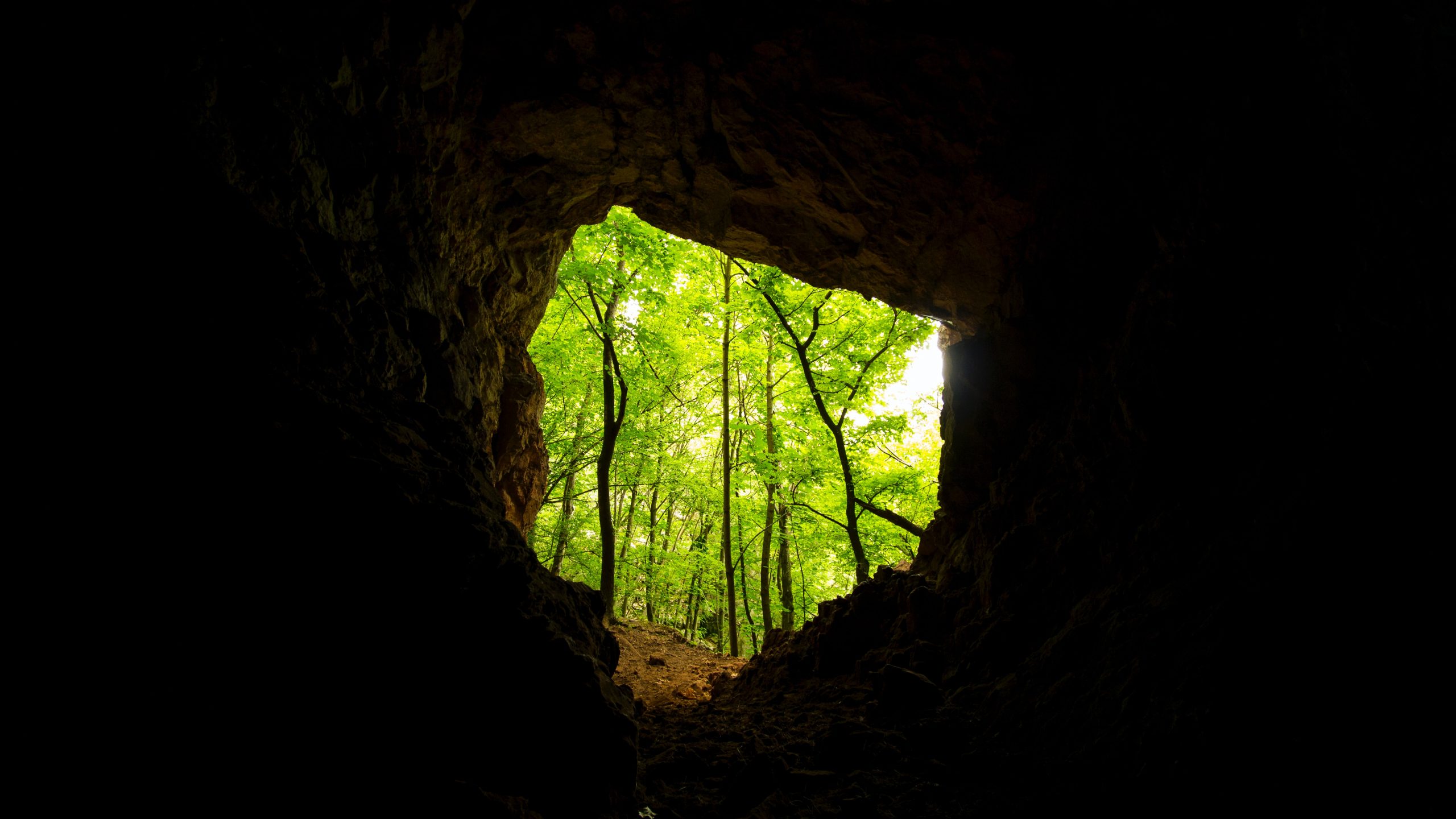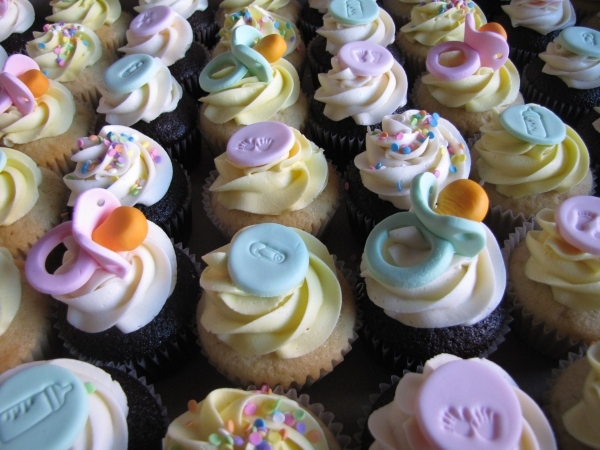Recommended Reading
Does She Have Postpartum or Is She Just Realistic?
"Nuclear" by Kate Tighe-Pigott, an original short story recommended by Electric Literature

INTRODUCTION BY HALIMAH MARCUS
In Kate Tighe-Pigott ’s exhilarating story, “Nuclear,” two friends take a plane across the country to visit Galena, who has just had a baby. It’s the kind of casual, every day start to a story that now makes me prickle with longing. Forget about getting on an airplane; imagine seeing friends, imagine holding their babies.
I accepted this story for publication late last year, before the stay at home orders, the anxiety, the pain, and the grief. As I revisited the story over the last month, I was floored to find that its meaning, and its extraordinary conclusion, had gained even deeper resonance.
Galena’s husband has called her two oldest friends, Harriet and the narrator, Amy, to their small town in Colorado. Galena’s not acting right about the baby, he tells them. She hasn’t named her, for one thing, and she seems careless, even reckless, with the baby’s delicate two-month-old form.
The trio sets out on a hike, baby in tow, to a mineshaft that Galena insists on visiting. On the trail, Galena rushes around ridges, skirts too close to edges. Her cavalier behavior is complicated by Amy’s own desire, and inability, to have a child. Amy and Harriet are Galena’s closest confidants but they are also double agents, evaluating her behavior and formulating an opinion to bring back to her husband.
Through this evaluation, Tighe-Pigott asks profound questions about the role fear and caution have to play in love and joy. Can one care for another without worrying about them? Is joy the result of overcoming fear, or the absence of it? Tighe-Pigott doesn’t just answer these questions—she makes you feel the answers, bores them into your very bones.
– Halimah Marcus
Editor-in-Chief, Recommended Reading
Does She Have Postpartum or Is She Just Realistic?
Kate Tighe-Pigott
Share article
“Nuclear”
by Kate Tighe-Pigott
Galena won’t shut up about the mineshaft. “You guys have to see this,” she keeps saying, packing her two-month-old daughter into the baby carrier I sent her a few months back. The baby still doesn’t have a name. They are working on it, Galena says, though they often go with Stinky Butt or Boo Boo. Maybe they’ll let her pick her own name when she’s old enough. Harriet and I share a concerned glance, which I’m sure Galena doesn’t miss. It’s April, and we’re in the parking lot at Rifle Falls State Park. I rub the baby’s feet. “How do you feel about that, Stinky Butt?” The moniker hangs in the air, big and awkward. Harriet and I have just endured a four-hour drive from Denver, already exhausted from the overnight flights we’d taken from the east coast.
Galena’s husband, Jake, reached out to us last week and asked us to come. He was worried. “You know her,” he’d said on the phone. “Everything’s at full speed. Dude—,” he censored himself while he sighed, “babies are fragile.” Before we left, Jake offered to keep Stinky Butt with him, but Galena refused.
You know her,” he’d said on the phone. “Everything’s at full speed. Dude—,” he censored himself while he sighed, “babies are fragile.
The spring snow floats up as my friends and I cross the parking lot. “You guys,” Galena says. “I can’t believe you came!” Her enthusiasm masks annoyance. “Of course,” says Harriet. It’s reasonable to visit an old friend’s new baby. Stumped for what to say, I ask how Jake’s handling everything. “Who cares?” says Galena. “I’m not attracted to him anymore.” I guffaw.
“That’s totally normal,” says Harriet, to both of us. Harriet has two kids at home. Baby Boo Boo whatever, zipped inside her mother’s coat, is Galena’s first. I’ve struggled with multiple late-term losses.
We survey the map at the trailhead. Then, bearing right, we follow the ascent, and the narrow stone passage opens to a frozen meadow. Ice crystals melt on our cheeks. The snow heartens me, because we all grew up in rural Maine and also in the past. Soon, we’re at the waterfall, the normal destination for this hike, lively amid moss and snow. We snap photos, but Galena urges us onward, toward this mineshaft she keeps mentioning. The narrow path is covered in red shale. Despite the newborn in her coat, despite her temporal proximity to giving birth, Galena nearly runs. Harriet, who is the least athletic of us and has the nicest shoes, navigates the terrain more sensibly. I lag behind with her. “Bionic woman!” I shout.
Galena stops in front of a trail junction thirty feet ahead of us, and swings her arms to the right, shakes her butt to the right, hops her butt to the right in short, backward hops, kicks a leg to the right, karate chopping the air, then disappears around a ridge. Is the baby jiggling around too much? What about her little gray brain? Tiny neck snapping. Is this the mania Jake was talking about? Stinky Butt must have endured this in utero, though. I presume we’re supposed to go right.
Harriet links her arm in mine and sighs. “How are you, Amy?” she says.
“Good,” I say, my voice too high. “I can’t believe Galena had a baby.”
“I know,” says Harriet. It’s dangerous because of her diabetes; we’ve all seen Steel Magnolias. The cells of her kidneys are decaying faster than they ought to for a thirty-six-year-old. Anyway, I am not one to speak. My body treats babies like hostile invaders.
Two late miscarriages, after bassinets and genders and names. Both times, I birthed the babies, held them while they died. Both times, I used a breast pump to ease the swelling, until my husband pried from me the motor and tubes and silicone nipples and plastic bottles and dumped them into trashbags with onesies and board books and JellyCat stuffed animals, and hid everything in the basement. He’s good. I’m grateful. After the second loss, we did genetic testing, went through three rounds of IVF, egg counting, hormone shots, dwindling savings, a lost job (mine), viable embryos dissolving into blood. We stopped last year, and I’ve been trying to get back on my feet, which has involved adult coloring books, Fiona Apple, and copious weed. When Harriet says, “How are you?” this is what she is referring to. When I say, “Good,” I mean, not dead.
Along the trail, a sign warns that the ground may contain radioactive materials. I take a picture of it with my phone.
“Jesus Christ!” Galena yells from the path ahead of us. “That’s not a picture. This is a picture.” She flings a hand at miles of dry orange plain, and behind that, snowcapped Rockies.
I read up on Rifle before we arrived. In the fifties and sixties, it was a site of nuke testing, above ground, underground. I tell my friends a story I heard on the radio about an American man, employed by the US government to walk through the fake neighborhoods decimated by nuke tests. It was his job to observe the eviscerated pig bodies, the fleece and teeth of the sheep in the rubble, and then to carry those images inside him for the rest of his life. Galena says she has to move before Stinky Butt hits six months, because her house has mill tailings, the worthless, granular byproducts of uranium milling that people around here used as fill. “To make cement, finish their yards, bury their sump pumps,” she says. “It’s everywhere. One X-ray per year, they say. Can you picture the baby in a few months, shoving radioactive dirt in her mouth? Didn’t have this problem in Maine, did we?”
I put my phone in my pocket as we single-file through a narrow rock formation that rounds the outside of the hill we’re climbing. The radio piece also told the story of a Japanese man who was at both Hiroshima and Nagasaki. I touch both walls of the stone corridor as I explain it to them. “Not only did he survive both of our planet’s only nuclear attacks,” I say, “but he also, somehow, did not become deranged. He fell in love and got married and—totally miraculously—had two daughters.”
“Why is that miraculous?” Galena asks from the front our line.
“Miraculous that he wanted to, and miraculous that he could. Because the gamma rays shredded his DNA, twice.”
“Huh.” She doesn’t get it. My point is more like Godzilla—how a monstrous thing can spare you or destroy you.
“My god you guys!” Galena jumps. “Here it is. The mineshaft.” She grabs my hand. “Will you go in with me?” She’s skipping backwards on the trail. “No bears, I promise.”
I catch Harriet’s eye. Risk seeking behavior. But it’s not out of character. In high school, we got on the evening news by dancing on the sidewalk behind the WGME news desk. We stole her dad’s snowmobile. We snuck Harriet’s crush into Galena’s bedroom. We raced beater cars down Whites Bridge Road. When I gave it up to Lesser Ben, Galena shot out his tires with her BB gun. I’d go into any mineshaft with her.
When I gave it up to Lesser Ben, Galena shot out his tires with her BB gun. I’d go into any mineshaft with her.
The cave is shallow and bright, and there are three steps carved into the stone on the far side that lead up to a small passageway that cuts deeper inside the mountain. I can’t even see if there is a bobcat in there. “Maybe the baby can stay back with Harriet?” I suggest. Harriet nods. This is what we are here to do: help Galena make safe choices.
“No way.” Galena unzips her coat and unclips the carrier. Stinky Butt squirms, her mouth a perfect O. Galena slips her out of the carrier and into the cold air, hands her to me. “She’s part of it. Plus Boo Boo loves adventure.” Part of what? The Earth? Aren’t we all? Despite myself, I see what Jake is talking about.
I take the baby. “Sh,” I say, softening every part of me. Her head smells like oatmeal, like honey. “Yes,” I sway and bounce. “It’s okay.” I am lying. Galena goes in first.
“Are you sure?” Harriet calls out. “I’m happy to watch her.”
“Mildred! Dotty!” Galena shouts, the names she uses when we’re too reasonable. “Stop being old biddies.”
“Does seem a little dangerous,” I say, holding the child.
“Where are your balls?” Galena scrambles up so that her face pops through the opening again. “Give her here.”
I bite my lips and shrug. Moms are shot-callers, and I’m not going to keep her baby from her. I hand the child over the rock to Galena. Then I swing my legs up and hang by my belly for a second to catch Harriet’s eye. “Dial nine-one,” I say. Harriet, I can tell, is annoyed at being made to wait and worry.
“We’ll be back in four-to-seven minutes,” Galena calls out.
“Wait,” Harriet says. She takes my hand and swings her legs over, dusts her name-brand slacks.
Galena insists I kill the light from my cell, and the darkness is total. We have taken seats on the rails, knees touching. I search for our outlines, but see nothing. Their knees bump mine. Sand and pebbles grind beneath my legs. My finger finds the cool raised top of what I imagine is a railroad spike. I hear us breathe.
“Shouldn’t we have a canary?” I ask.
“We have her,” Galena says of her baby. Harriet snorts. “Just kidding. I was down here all summer. It’s totally safe.” I file this for the conversation we’ll inevitably have with Jake.
In the dark, I imagine ammonites, those spiral-shaped fossils of nautilus-like creatures that lived in the temperate sea that is now Colorado. I imagine the ammonites floating all around us, in beds of rainbow topaz and tourmaline crystals, spikes of rose quarts, purple amethyst, red garnet. In the dark, I envision so many shapes and colors.
“I never wanted a baby.”
Our hands reach out, find the nylon of her winter coat, her silky pony tail, the nape of her neck. Our foreheads clonk too heavily onto hers.
“God,” Galena says. We find her hands and hold them.
“What made you decide?”
“He’d be a great dad.” We hear what she doesn’t say: what she would have lost if she had chosen differently.
“I would never trade her. I just mean—.”
“I know.”
Galena doesn’t want the baby she has. How cruel and senseless is this universe? Not worthy of this new girl. I bite my rage. We hold hands in the dark.
“How far underground are we?”
“Millions of miles.”
“Can we stay here?”
“Do you think there are bugs?”
“There are bats. But they’re more afraid of us.”
“What about uranium? If a bomb went off would we be safer down here?”
“What is it with you and nukes?” Then Galena says, “She’s hungry.” We hear a zipper. The rip of Velcro. The wrinkle of Gore-Tex. The squeak of a tiny new voice. “Guys, feel my boobs.” Our hands cast out stupidly, and she grabs them, puts them on her skin. Her breasts are scorching hot and rock hard, like a Kevlar vest left in the sun.
As the baby nurses in the dark, we confess all kinds of things: debt, weed, wine, psilocybin, work husbands, failed attempts at threesomes. I remind Galena of her time as an exotic dancer. We rib each other for our exes and agree mine was the most shameful, because he was—probably still is—a Republican, though Galena’s could talk for hours about maps, and Harriet’s wrote “you are so sweat” in a note explaining why he stole her car.
“God we’re old,” Galena says.
“Geriatric,” I say, speaking for my womb. It’s not so bad. My marriage is loose and light—platonic—a comfy sweater I sometimes wear.
As my eyes adjust to the darkness, I make out the curves of Harriet’s right cheek and jawbone, the light in her right eye. Galena’s dimpled chin and bright eyes are lit from below. In the dim green light, through their North Face gear, mother and child look like Renaissance versions of themselves. “Why can I see you?” I say. Galena strokes the baby’s wagging arm, which, in its movement, leaves behind a green facsimile of where it’s just been. She seems—I’ll say it—bioluminescent.
“Do you have a glow-in-the-dark baby?” I ask.
Harriet squeaks, delighted, bewilderment in her grin. Everyone is tinged with green.
“Isn’t she amazing?” Galena says. “This is it. This is what I wanted to show you. I wanted her aunties to see what she could do.”
My jaw hangs. I reach out to touch the baby’s arm. In it I see swirling galaxies of what I imagine are cell clusters, and the electric green pathways of neurons. “How did this happen?” I ask.
“How the hell should I know?” Galena says. “Maybe we’re evolving.” She reaches into her coat, hands shaking. “Low again,” she says. “Breastfeeding dehydrates me.” She clicks her insulin pump three times. She’d told me in college once that she shouldn’t drink because of her diabetes, though she continues to. I hear the crinkle of a Clif bar she has produced from her coat pocket.
I think of the mill tailings. The nuke testing. “Is she radioactive?” I ask. “I mean, have you brought her near a Geiger counter? Or a doctor?” Harriet giggles.
“My child’s a freaking miracle,” Galena says, mouth full of rice syrup and rolled oats. “If you don’t like it, that’s your bag of shit.”
My child’s a freaking miracle,” Galena says, mouth full of rice syrup and rolled oats. “If you don’t like it, that’s your bag of shit.
“I do like it.” Of course I do. “Can I hold her?” This is not something I ask of people with babies, because I hate the moment when the baby arches its back and cries out for its mama—which they always do—and also because I don’t want any moms to even secretly worry that I’m a craven witch or baby snatcher.
“Course,” Galena holds the child in the air, electric green arms and legs, and green heart pumping luminous blood. In her self-generated light, the baby seems pointillist, as if just the nuclei of the cells are illuminated. I think of the Hiroshima babies, the ones I Google in fits of anguish. The twisted up, no-face babies. The two-headed, bulbed-feet babies. The many-armed babies. Of the myriad horrible outcomes of radioactivity, glowing is miraculous.
“Hi,” I coo. “Hi.” My finger slips into her grasp. “Does she have super powers?”
“Besides glowing?” Galena says. “She’s a super pooper.” The baby murmurs and wiggles against me. I sense her agitation and stand up to rock and jiggle. “Watch your step,” Galena says. “Jake’ll murder me if she comes back banged up. He’s such a nervous dad.”
“Does he know?” Harriet says.
“He’s not blind, and he does night time feedings. I wouldn’t fuck with a guy who doesn’t pull his weight, you know.” Harriet knows. Her husband doesn’t pull his weight. And my husband, well, since we spent our life savings and my youth on failed inseminations, my husband pulls my weight most of the time. I miss him suddenly. “Can you see up my nose?” I ask, realizing I am illuminated from below by the new baby’s head.
“Let’s tell ghost stories!” Galena says. The cave air is cold and clean, and we’re shielded from wind and snow.
“Once I was in the attic at my grandmother’s house,” I make my voice eerie, “And I took some acid, and I was freaking out and I heard the shower running even though I was up there alone and then a woman walked out in a white dress and she walked toward me and toward me until she was very close and then she reached out and touched me.” I touched Galena’s knee.
“Jesus!” she said.
“Is that true?” Harriet asked.
“No.” I say. My ex, the Republican, told me that story. A true story is that I took mushrooms last year and didn’t think I was breathing so I called 9-1-1 on myself and paramedics came and told me I was breathing, but I didn’t believe them. My husband watched me until the effects wore off.
The baby squirms on my shoulder. “Pat her back,” Galena says. “She needs to burp.” I pat the child gently, through her soft blanket. “Harder,” Galena says. Galena gets up to show me. She wacks the child a few times. “Get a rhythm,” she says. “She won’t break.”
I pat and pat and jiggle and pat. Tiny ribs compress under my hand, a living system in my arms. “Why haven’t you named her?” I ask. I named the babies I birthed too early. Said their names as their breathing slowed.
“I’m holding out for Roxy,” Galena says. Roxy was her favorite snowboard brand in high school, and also the alias she used after she broke up with a guy who turned stalkery. “But Jake thinks it’s a hooker name”
“Like mother,” I chasten, leaving the rest unfinished.
“Dancer!” she corrects. “Don’t be such a Puritan.”
Just then, the baby burps. The burp rumbles up through her ribs under my hand and explodes into the cavern, illuminating everything. In the flash, I see the bones of old sabertooths, flecks of mica, maybe diamonds, the veins of rusting iron ore, stalactites, and the skulls of dead animals—horses? Or dogs?
“Holy shit!” Harriet says, standing. The cave darkens again and we can only see the baby and her halo. “We have to go.” She sounds annoyed that she let herself get dragged into this. Like that night Galena talked us into going to New York with no hotel room because we “weren’t going to sleep.”
A deep moan echoes from the ground above us. Pebbles rattle dully against the cave floor and ping off the old rails. “Give her here,” Galena says.
As the ceiling falls in, I turn from my friend’s outstretched arms, covering the child’s head with my head and shoulders and arms and belly. Chunks of cave wall punch my back and legs. I hold my breath, bracing for more.
When the rock fall is over, the baby girl and I are ashy, but unburied. I exhale. I shake debris out of my hair as Roxy wails for her mama, as green as that girl from the exorcist and projectile vomiting all over me. I think of chemotherapy. Do her bones hurt? Is her magic a burden to her?
“Hey!” It’s Galena, calling from the other side of a wall of stones. “You guys okay?”
“I got her,” I yell. “She’s okay. We’re okay.”
My friends will go for help. Galena councils me to open my blouse and comfort the baby with skin-to-skin contact. She likes R.E.M. songs, Galena says. They soothe her.
“What?” I say, suddenly unable to remember anything about R.E.M.
“‘Losing My Religion’ is her favorite,” Galena calls out, and tells us to sit tight.
Aren’t you worried? I want to ask. Aren’t you out of your mind? But I sense that she has gone already and her worry won’t help us now. I try to breathe, imagine the child choking, cracking apart like a vase, her skull crushed by falling rocks, her skin boiling with radiation, her muscles dissolving into a bloody mess. Every whisper of every waking hour. I unzip my coat and curse my tee-shirt, pull it up over my breasts and cover us with my coat. I walk the glowing baby around in the dark, trying to remember the lyrics, trying to find the rhythm, the right combo of shuffle and bounce, low hum, and sha-sha-sha. Calm can crescendo like a singing bowl or an orgasm: it’s an art I’m not practiced in.
Roxy stretches tiny dry fingers against my neck, still screaming. Recently, she was not even alive. She must feel homesick for nothingness, for the twinkle of a star being born, a soul being retrieved from a dolphin, a felled oak, a dragonfly and who knows what else from other life-having planets. Now here she is, stuck on radioactive land, drinking hot breast milk from a mother whose internal organs decay by the minute due to faultily regulated sugars, in a town with a restaurant called Shooters. “I’m sorry.” I steady my breath. The baby straightens her back and wails. “You’re stuck here for a while.” On Earth, I mean. With the crazies. I’m going to tell Jake to back off. Galena’s fine. So what if she doesn’t feel dread every second? So what if she just feels the wonder?








